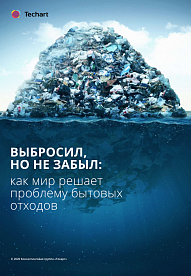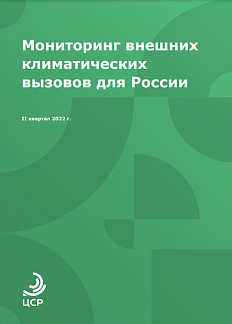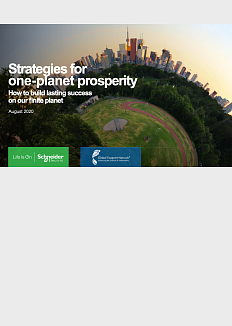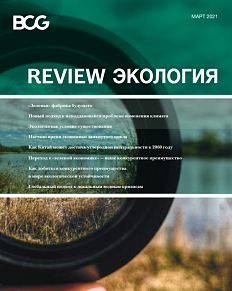The Techart survey provides information on statistics of waste generation, utilisation and recycling in Russia and worldwide.
The Roscongress Foundation presents the salient points of the publication accompanied by fragments of broadcasts of relevant panel discussions from the business programme of international events held by the Roscongress Foundation.
According to the World Bank, in 2016 the world produced more than 2 billion tons of household waste. If the current policy of household waste management is maintained, by 2050 mankind will leave 3.4 billion tons of waste annually, i.e. 70% more.
Today, the average amount of waste per inhabitant of the Earth is 0.74 kg per day. The indicator is highly dependent on the development and level of income in the country and varies from 0.11 to 4.54 kg per day per person. The U.S., Canada and EU member states account for only 16% of the world’s population but produce 34% of the world’s waste. Waste generation is expected to increase in the future by increasing its production in poor and developing countries.
It is estimated that 93% of waste is not managed properly in low-income countries and 2% — in high-income countries. On average in the world only 13.5% of waste is recycled and 5.5% is composted. The majority of the waste generated worldwide is not recycled, but released or incinerated openly.
In Russia, as in the rest of the world, waste production has more than doubled since 2010, mainly due to the rapid development of industry and agroindustrial complex. However, during the crisis, this indicator is recorded to decline, which is associated with a slowdown in production in these industries.
Waste accumulation volumes are growing: according to the Federal Service for Supervision of Natural Resource Usage estimates, by the end of 2018 waste amounted to 42 billion tons. Siberian Federal District has the highest waste generation rate — 5.1 billion tons, which is associated with mining activity in the Kemerovo Region (the main coal mining region of Russia) and the formation of a large number of overburden. The North Caucasian Federal District produces the least waste — 3.2 million tons.
Waste generation volumes in Russia per inhabitant are higher than the world average (about 1.3 kg per day). The main barrier to increasing the share of household waste processing is a lack of a systematic approach to separate waste collection in Russia, which includes the lack of a well-established model of interaction of all the participants in the waste management process (collection — processing — use of secondary raw materials), as well as clear legislative regulation of the industry and thoughtful government support.
Video: https://roscongress.org/sessions/spief-sp-2019-innovatsii-obrazovanie-sotsialnye-investitsii-instrumenty-razvitiya-ustoychivogo-budushchego/search/#00:18:34.623For more information about construction as a sector with a sizeable share in many economies, rising level of digitalization, and shifts in consumer sentiment in real estate, please see the Waste utilization and reprocessing, Environment and «Green» technologies.






